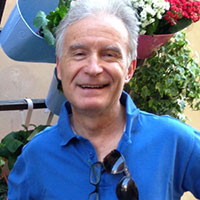 Paolo Monaco
Paolo Monaco
Department of Physics and Geology
University of Perugia
Via Pascoli ‒ I-06123 Perugia
Italy
paolo.monaco@unipg.it
Ichnologist and Sedimentologist at the BIOSED-LAB Research Group of Department of Physics and Geology. Researcher in marine Ichnology, Stratigraphy, and Geology. Member of SPI (Italian Paleontological society) and of ICHNO-ITALIA (Ichnology of Italian Research Group). Experienced in many studies from Jurassic to Pleistocene in Apennines and southern Alps, focusing ichnotaxa of carbonate or turbiditic siliciclastic deposits, and finalized to taphonomy, ichnology, stratigraphy, palaeoecological reconstructions and evaluation of ichnocoenosis and ichnofacies changes.

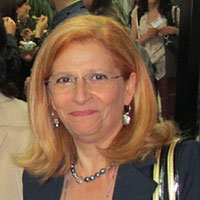 Angela Baldanza (corresponding author)
Angela Baldanza (corresponding author)
Department of Physics and Geology
University of Perugia
Via Pascoli ‒ I-06123 Perugia
Italy
angela.baldanza@unipg.it
Researcher on Geology, Stratigraphy and Sedimentology. Research fields: Biostratigraphy (Calcareous Nannofossils and Foraminifera), Paleoecology and paleoenvironmental reconstruction of marine and continental successions (from Jurassic to Quaternary). Archeometry (characterization of raw and building materials from historical Greek and Roman Italian sites). Conservation and enhancement of plant fossil record (Dunarobba Fossil Forest, Umbria, Italy). Member of SPI (Italian Paleontological society) and AIQUA (Italian Association for Quaternary researches).

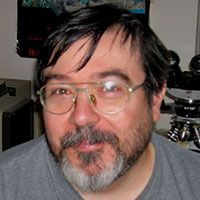 Roberto Bizzarri
Roberto Bizzarri
Department of Physics and Geology
University of Perugia
Via Pascoli ‒ I-06123 Perugia
Italy
roberto.bizzarri@libero.it
Degree (magna cum laude) in Geology in 2001, he received a Ph.D. in Earth Sciences (Stratigraphy and Sedimentology) in 2007 at the University of Perugia (Italy). He worked on projects for geological mapping 2004-2010. Research Fellow 2011-2012 (POR2007-2013 funding-Regione Umbria) at the University of Perugia. Currently collaborates as freelance researcher on Geology and Sedimentology with the Department of Physics and Geology, University of Perugia, and alternates between research and the teaching of Natural Sciences in high school. Member of SGI (Italian Geological Society ) and SPI (Italian Paleontological society). His research interests include Sedimentology of marine and continental deposits, Quaternary Geology and Stratigraphy, Paleoenvironmental reconstruction and Paleoecology, Field Geology and Geological Mapping, Cultural Heritage and Scientific Dissemination.

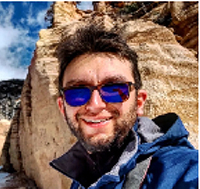 Federico Famiani
Federico Famiani
School of advanced studies–Geology division
University of Camerino
Via Gentile III da Varano ‒ I-62032 Camerino
Italy
federico.famiani@gmail.com
Coordinator and supervisor at Paleontological Museum of Mount Subasio Regional Park (Assisi, Umbria, Italy). Research fields: Paleoecology and paleoenvironmental reconstruction of marine successions in Umbria and Calabria Quaternary deposits. Interests: GIS, Geological mapping, stratigraphy, Invertebrate Paleontology, Toarcian Ammonites and Quaternary. Member of SPI (Italian Paleontological society) and SGI (Italian Geological Society – deputy of young section).

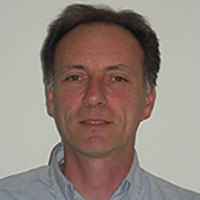 Marco Lezzerini
Marco Lezzerini
Department of Earth Sciences
University of Pisa
Via Santa Maria
53 ‒ I-56126 Pisa
Italy
marco.lezzerini@unipi.it
Researcher in Mineral resources, mineralogical and petrographic applications for the Environment and Cultural Heritage. Member of SIMP (Italian Society of Mineralogy and Petrology), AIAr (Italian Association of Archaeometry) and INSTM (National Interuniversity Consortium of Materials Science and Technology). Research activity is dedicated to the industrial use of minerals, aggregates, dimension and decorative stones, mineralogical and petrographic studies of stones, marbles and mortars, science and technology for cultural heritage. Other research topics are archaeometry and urban geology.

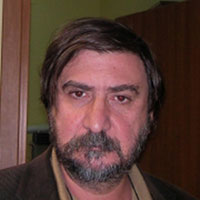 Francesco Sciuto
Francesco Sciuto
Department of Biological, Geological and Environmental Sciences
University of Catania
Via A. Longo
19 ‒ I-95125 Catania
Italy
fsciuto@unict.it
Researcher in Stratigraphical Geology at the University of Catania. Member of CONISMA (Interuniversity Consortium for the Marine Sciences) and COCARDE-ERN (Cold-Water Carbonate Mounds in Shallow and Deep Time – The European Research Network). Experienced in the study of the Plio-Pleistocene and Recent marine ostracod association finalized to taxonomy, stratigraphy, palaeoecological reconstructions and evaluation of climate change.


